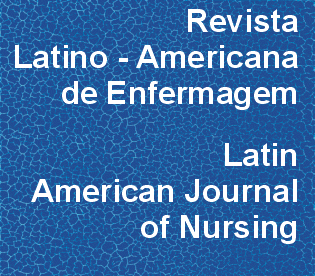Between freedom and reclusion: social support as a quality-of-life component in the family caregiver-dependent person binomial
DOI:
https://doi.org/10.1590/S0104-11692008000100003Keywords:
social support, cerebrovascular accident, patients, family, rehabilitationAbstract
This is a qualitative study which uses Grounded Theory as its methodological framework and Symbolic Interactionism as a theoretical base to understand the experience of family caregivers for Cerebrovascular Accident (CVA) patients with regard to social support during their rehabilitation process at home. The components (themes and categories) of the phenomenon assuming home care and specifically the themes assuming care with support and assuming care without support were inter-related for the purpose of comparison and analysis, in order to apprehend how the interaction between them occurred. It was observed that, in addition to the recovery of the patient's autonomy, social support is one of the intervenient components in the quality of life for the family caregiver-disabled person binomial, particularly with respect to the caregiver's freedom to resume his/her life plan.Downloads
Download data is not yet available.
Downloads
Published
2008-02-01
Issue
Section
Original Articles
License
RLAE’s authorship concept is based on the substantial contribution by each of the individuals listed as authors, mainly in terms of conceiving and planning the research project, collecting or analyzing and interpreting data, writing and critical review. Indication of authors’ names under the article title is limited to six. If more, authors are listed on the online submission form under Acknowledgements. The possibility of including more than six authors will only be examined on multicenter studies, considering the explanations presented by the authors.Including names of authors whose contribution does not fit into the above criteria cannot be justified. Those names can be included in the Acknowledgements section.
Authors are fully responsible for the concepts disseminated in their manuscripts, which do not necessarily reflect the editors’ and editorial board’s opinion.
How to Cite
Between freedom and reclusion: social support as a quality-of-life component in the family caregiver-dependent person binomial. (2008). Revista Latino-Americana De Enfermagem, 16(1), 15-23. https://doi.org/10.1590/S0104-11692008000100003



